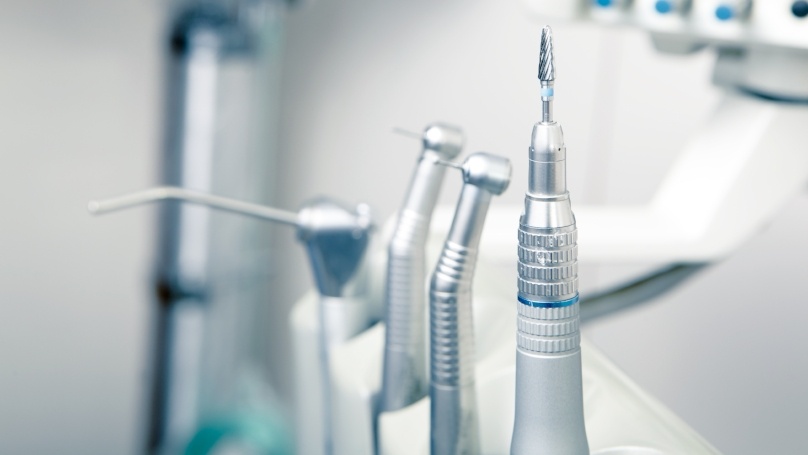
Jimmy Pickert, CFA, CRPS® Portfolio Manager
So, you’re a dentist making a decent salary, but you just can’t seem to get ahead in your financial standing. Sound familiar?
While dentists have high-earning potential, a well-paid salary doesn’t mean financial security. Paying off your dental school debt, controlling your spending and saving for retirement is a balancing act. With the right guidance, you can overcome obstacles and achieve the financial success you envision.
Two Common Financial Obstacles for Dentists
-
High Levels of Educational Debt
Dentists are graduating with resounding levels of debt. According to the American Dental Association, the average 2016 dental school graduate owes more than $261,000 in loans. Meanwhile, the average 2016 college graduate has $30,100 in debt. With such deep financial liabilities, many dentists are still paying off school loans in their 30s and 40s.
-
A Flat-Lined Income
The dental industry has seen average net income levels decrease for general practitioner (GP) dentists. After peaking in 2005 at $219,638, their average annual income gradually fell to $179,960 in 2015. Data trends suggest that these salaries aren’t bouncing back any time soon.
The fact remains — dentists are paying more for their education while making less money. So, it’s best to act now to help ensure you’re properly managing your financial health and retirement goals.
Develop a Plan to Manage Your Debt
It’s not uncommon to see dentists, or any medical professional, overspend when they start their careers. It’s understandable—they spend years on their post-graduate studies and want to treat themselves once they start seeing their paycheck.
While you may be tempted to reward your hard work, a better strategy is spending your first years out of college paying down debt. Many dentists hold federal student loan debt with 6 - 7% interest rates, making it difficult to chip away at principal. Stuck with large monthly payments, building a successful career can become nearly impossible if you’re unable to balance your cash flow.
From our perspective, you have two immediate financial strategies to consider:
Strategy 1: Build a plan to improve your cash flow.
You’ve worked hard to achieve this career, and you want to be able to build the level of wealth your hard work deserves. But before you see money flowing into your savings each month, it’s important to take care of the main drain on your wealth—student debt.
- Refinance your loan to pursue a lower interest rate.
Even a 1% reduction can help you save thousands of dollars down the road, which you can reinvest toward retirement. Only 15% of dentists are on track to achieve their personal retirement goals without the projected sale of the practice, according to the Academy of General Dentistry. - Decrease unnecessary spending.
Cash-flow problems will jeopardize your financial standing. This is true if you’re a business owner or an associate. Right now, focus on decreasing school debt. By doing so within those first five years out of college, you’ll create more stable cash flow and improve your ability to save.
Strategy 2: Choose the optimal retirement plan for your needs.
As a business owner or highly compensated employee, you have the ability to contribute more to your retirement plan than traditional annual limits. Considering the average dentist needs roughly $2.5 million to maintain their current lifestyle and finance their retirement, customizing your savings plan is essential. The key is to work closely with an advisor who understands your unique financial world.
- Retirement Plans for Dental Associates:
As a dental associate, you’re held to the specific retirement plan your practice offers. While you may not be able to sway the creative solutions your employer offers, you can build personalized retirement strategies on your own. Even if you’re dealing with student debt, saving for retirement from the beginning is an important habit to start. From there, your advisor can help you find ways to maximize your savings while working within your provided plan options.
- Retirement Plans for Dental Practice Owners:
Dental practice owners want to focus on creating both pre-tax savings and tax-deferred growth. Business owners often believe that the best way to build retirement savings is a 401(k) plan. This is with a limited $18,000 annual contribution when under 50. In reality, you can design a plan that may allow you to defer significantly more than the $18,000 limit in a 401(k).
Gain Control of Your Financial Future, Today
In our experience, we’ve been able to save dentists $40,000 – $50,000 in taxes with tailored retirement plans, depending on their income. By designing thoughtful strategies that reflect your unique needs, you can balance your professional obligations while adequately saving for retirement.
Your financial life is unique. At ACG, we’re well versed in helping dentists turn rocky financial standings into retirement-ready futures. We’re here to provide the knowledge and support that helps you make sense of a financial world in motion.



